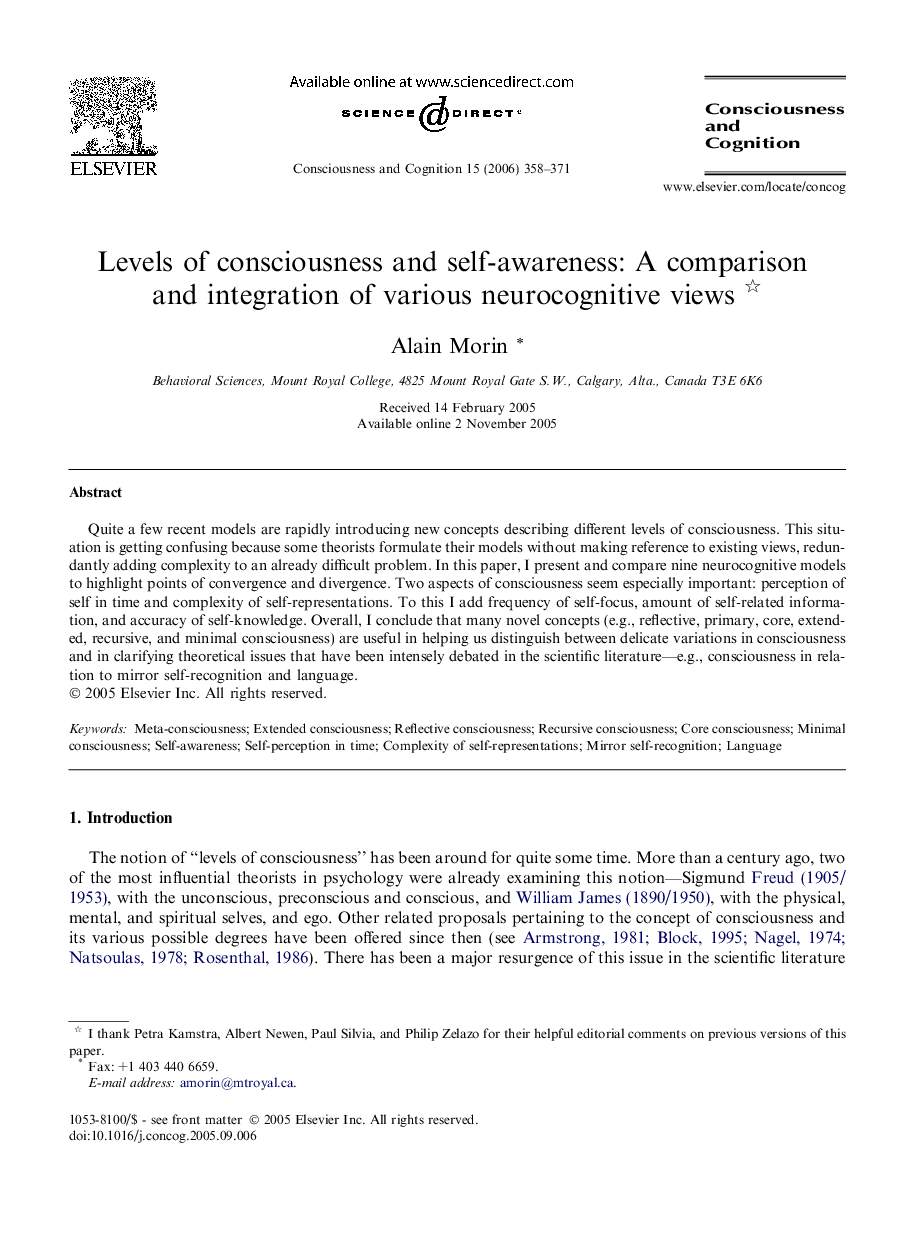| Article ID | Journal | Published Year | Pages | File Type |
|---|---|---|---|---|
| 927929 | Consciousness and Cognition | 2006 | 14 Pages |
Quite a few recent models are rapidly introducing new concepts describing different levels of consciousness. This situation is getting confusing because some theorists formulate their models without making reference to existing views, redundantly adding complexity to an already difficult problem. In this paper, I present and compare nine neurocognitive models to highlight points of convergence and divergence. Two aspects of consciousness seem especially important: perception of self in time and complexity of self-representations. To this I add frequency of self-focus, amount of self-related information, and accuracy of self-knowledge. Overall, I conclude that many novel concepts (e.g., reflective, primary, core, extended, recursive, and minimal consciousness) are useful in helping us distinguish between delicate variations in consciousness and in clarifying theoretical issues that have been intensely debated in the scientific literature—e.g., consciousness in relation to mirror self-recognition and language.
